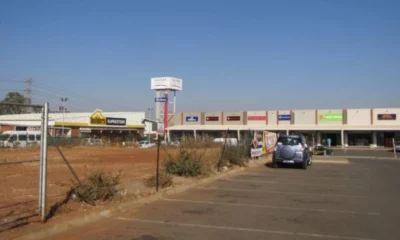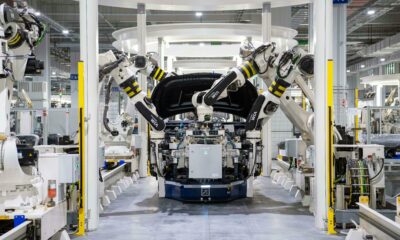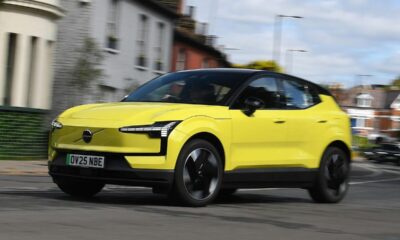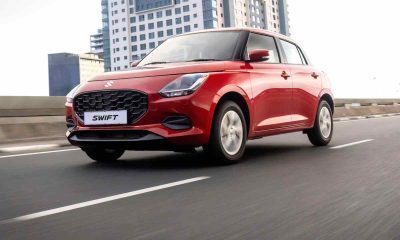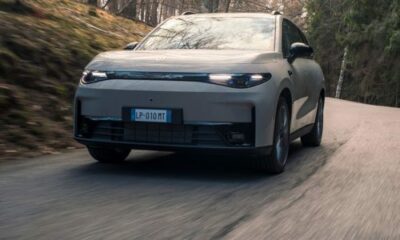News
Power Shift: How South Africa’s Petrol Stations Are Being Rewired for the EV Era
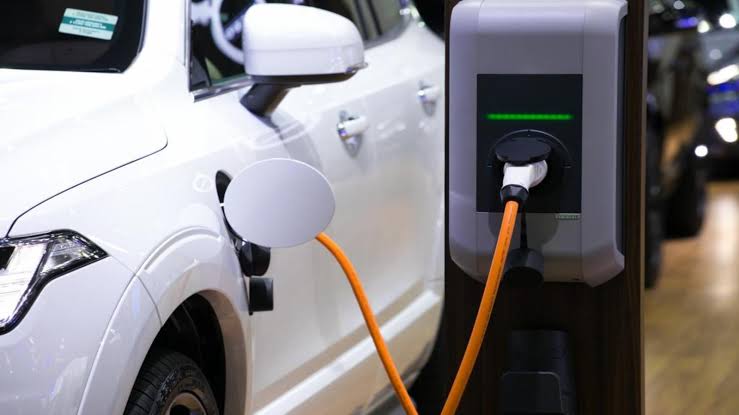
From Pump to Plug: Local Fuel Stations Gear Up for an Electric Future
South Africa’s iconic fuel stations, once simple stopovers for a quick refuel and maybe a pie, are gearing up for a transformation that goes far beyond petrol and diesel. A new era is dawning, and it’s electric.
Karen Keylock from Nedbank Commercial Banking says the global pivot towards electric vehicles (EVs) and cleaner fuels is not just a trend; it’s a reality fast approaching South Africa’s roads. The challenge? Our country’s EV infrastructure is still in its infancy. The opportunity? Our existing fuel stations may be the perfect launchpad.
Charging Ahead with a National Network
The good news is that help is on the way. The National Association of Automobile Manufacturers of South Africa (NAAMSA), alongside private sector partners, is spearheading the development of a national EV charging network. The plan includes 120 charging points installed across major routes, not in brand-new buildings, but at the very same petrol stations we’ve all come to rely on.
Why reinvent the wheel when you’ve already got the pit stop?
These revamped forecourts will lean heavily on solar power, tapping into the sun-soaked rooftops of filling stations to generate clean electricity. With wide forecourts already exposed to full sunlight, many petrol stations are surprisingly well-suited for solar PV installations.
“This is a profitability game-changer,” Keylock notes. “By investing in solar, fuel station owners can reduce reliance on the grid and boost their earnings while supporting the green energy shift.”
Forecourts Are Evolving, Again
South Africans have long watched their local petrol stations morph into multi-purpose hubs. Since the 1960s, these spaces have gone from pure fuel stops to mini-malls, think fast food joints, convenience stores, car service bays, tyre fitment centres, and even roadside hotels.
But the addition of EV charging stations may spark a whole new level of evolution.
Because charging an EV takes far longer than pumping fuel, station owners are starting to imagine what else customers might want to do while they wait. Picture co-working spaces, pharmacies, laundry drop-offs, gyms, or even pop-up hair salons. In short, the service station of the future might feel more like a lifestyle centre than a fuel depot.
EV Growth Still Has Roadblocks
Still, it’s not all smooth driving from here. Electric vehicles make up less than 3% of South Africa’s total car market — and that slice is mostly dominated by hybrid vehicles, such as the Toyota Corolla Cross and Haval Jolion.
The biggest obstacle? Price. Full battery-electric vehicles (BEVs) often come in at over R900,000, making them inaccessible to the average South African driver.
However, there’s hope on the horizon. Government is gradually slashing import duties on EVs, a move that could bring prices down over time. Plus, EVs offer long-term savings: lower maintenance, fewer service requirements, and cheaper “fuel” costs. A full EV battery can last 8–10 years, and home charging using solar setups can effectively eliminate running costs altogether.
But until prices drop, most South Africans are likely to stick with petrol or hybrid options.
South Africans React: Curious, But Cautious
On social media, public reaction to EVs in SA is mixed. Many urban drivers are intrigued by the idea of going electric, especially with rising fuel prices and loadshedding woes making solar-charged EVs an attractive long-term solution.
But rural communities and long-distance commuters remain sceptical, citing lack of access and unreliable grid supply. “Let’s fix the basics before going futuristic,” wrote one X (formerly Twitter) user. Another countered, “This isn’t about the future, it’s happening now. We either plug in or fall behind.”
South Africa’s fuel stations are no longer just about fuel. They’re about adapting to change, cleaner energy, smarter services, and a more sustainable future.
Whether you’re behind the wheel of a diesel bakkie or dreaming of a Tesla, one thing’s clear: the next time you stop at a filling station, you might be plugging in instead of filling up.
And that’s not just a technical upgrade, it’s a cultural one.
Need to Know:
-
EV share in SA market: <3%
-
Average price of full EVs: Over R900,000
-
Charging network: 120 new sites planned
-
Solar integration: Key to reducing grid dependency
-
Main driver for change: Global push for cleaner, greener mobility
{Source: Top Auto}
Follow Joburg ETC on Facebook, Twitter , TikTok and Instagram
For more News in Johannesburg, visit joburgetc.com

